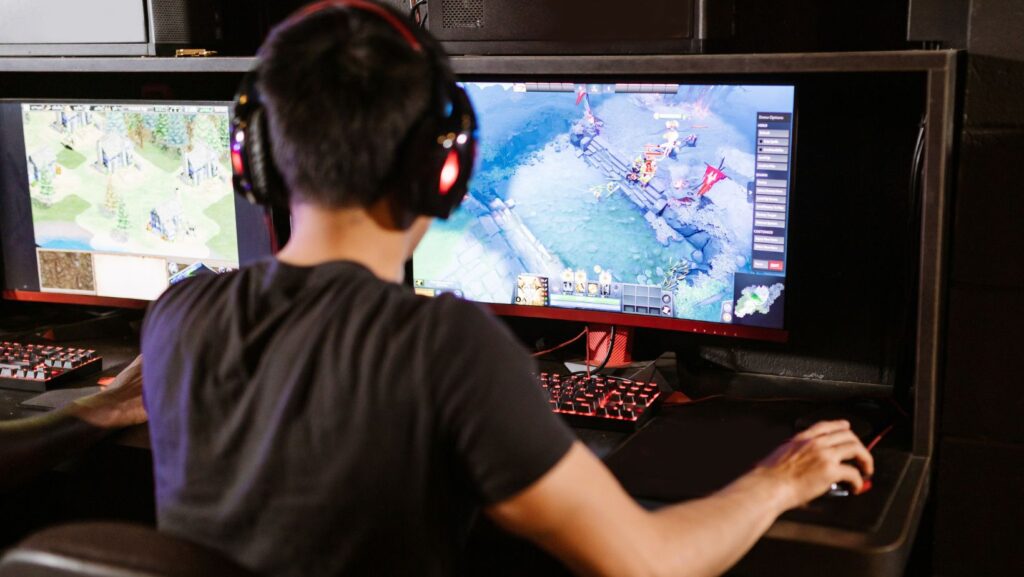Since its launch in 2001, RuneScape has stood as one of the most enduring MMORPGs in gaming history. While the landscape of online gaming has transformed dramatically over two decades, Jagex’s iconic title continues to captivate millions of players worldwide. The game’s survival and continued growth speak to something unique about its design philosophy and community engagement that resonates across generations.
Old School vs RS3
One of the most fascinating aspects of RuneScape’s modern era is the existence of two distinct versions. RuneScape 3 represents the evolved, modernized iteration with updated graphics, complex combat mechanics, and extensive quality-of-life improvements. Meanwhile, Old School RuneScape (OSRS) captures the game as it existed in 2007, preserving the nostalgic experience that made the original so beloved.
This split, rather than dividing the community, has actually strengthened it. OSRS appeals to purists and players who appreciate the simplicity and grind of the original, while RS3 attracts those seeking more modern MMO features. Both versions maintain healthy player bases, demonstrating that there’s room for multiple interpretations of the same foundational game.
The Grind Culture And Competitive Spirit
RuneScape’s gameplay revolves around skill progression across 23 different skills in OSRS and 28 in RS3. This system creates a unique form of competition where players race to achieve milestones like 99 in all skills or the coveted max cape. The game’s high scores system has fostered a competitive environment where efficiency and optimization are celebrated.
Speedrunning communities have emerged around various achievements, from fastest quest completions to account build challenges. Ironman mode, which restricts trading and forces self-sufficiency, has become particularly popular in the competitive scene. These self-imposed challenges create content for streamers and YouTubers while pushing the boundaries of what’s possible within the game’s mechanics.
The Membership Economy
Access to member-only content significantly expands the RuneScape experience. While free-to-play areas offer substantial content, membership unlocks the vast majority of the game world, quests, skills, and activities. The difference is so substantial that many consider free-to-play essentially an extended trial rather than the complete experience.
Players can obtain osrs membership through various means, including direct purchase or in-game bonds purchased with gold. This dual-currency system allows dedicated players to maintain membership without real-world spending, while others can skip the grind by converting real money into game time. Platforms like eldorado.gg have become popular alternatives for players seeking flexible membership options.
Content Creation And Streaming
The RuneScape content creation scene has exploded in recent years. Creators like SoupRS, Settled, and C Engineer have built massive followings through creative series concepts and challenge runs. The game’s relatively slow-paced nature actually works in its favor for streaming, allowing creators to interact heavily with chat while playing.

Challenge accounts provide particularly compelling content. Series like “Swampletics,” where a player restricted themselves to the Morytania region, garnered millions of views and brought new attention to OSRS. These self-imposed restrictions create narratives that captivate audiences, proving that creativity can thrive within RuneScape’s established framework.
The PvP Scene And Deadman Mode
Player-versus-player combat in RuneScape has maintained a dedicated following since the Wilderness was introduced. The high-stakes nature of PvP, where death means losing items, creates intense moments that few other MMOs replicate. Skilled PKers (player killers) have achieved celebrity status within the community, with their techniques studied and replicated by aspiring PvPers.
Deadman Mode tournaments represent RuneScape’s most direct foray into esports-style competition. These seasonal events feature accelerated progression rates and permadeath mechanics, culminating in a tournament where the last player standing wins substantial cash prizes. While not traditional esports, these events draw significant viewership and demonstrate RuneScape’s competitive potential.
Quest Design And Storytelling
RuneScape’s quest system stands apart from typical MMO fetch quests. Many quests feature intricate puzzles, memorable characters, and genuine humor. The writing quality varies from intentionally silly to surprisingly deep, creating a diverse narrative landscape. Quests like “One Small Favour” and “Recipe for Disaster” have achieved legendary status within the community.
The quest design philosophy prioritizes player agency and problem-solving over waypoint following. This approach, while sometimes frustrating for newcomers, creates memorable experiences and genuine accomplishment when completed. The lack of hand-holding means players must think critically and occasionally consult guides, fostering community interaction and shared knowledge.
Economic Systems And Trading
RuneScape’s player-driven economy is remarkably complex and sophisticated. The Grand Exchange, introduced in 2007 and present in both game versions, functions as a real-world-inspired stock market where item prices fluctuate based on supply and demand. Players engage in “merching” – buying low and selling high – creating a game within the game.
This economic depth attracts players interested in market manipulation and trading strategies. Some players focus almost exclusively on economic activities, treating RuneScape as a business simulator rather than a traditional RPG. The introduction of bonds, allowing players to purchase membership with gold, added another layer to this economic ecosystem.
Community Polling And Player Input
OSRS employs a unique democratic system where major updates require 75% approval from players through polls. This system ensures the community maintains control over the game’s direction, preventing unwanted changes that might alienate the player base. While occasionally controversial when popular updates fail to pass, the system preserves the authentic Old School experience.
This player-driven development model has fostered unprecedented trust between developer and community. Jagex actively engages with player feedback, adjusts proposals based on concerns, and maintains transparency about development priorities. This relationship has become a model that other game developers study and sometimes attempt to replicate.
The Mobile Revolution
The launch of mobile versions for both OSRS and RS3 expanded accessibility dramatically. RuneScape’s point-and-click nature translates surprisingly well to touchscreens, allowing players to progress while away from computers. This mobile integration has introduced the game to new demographics and provided existing players with unprecedented flexibility.
